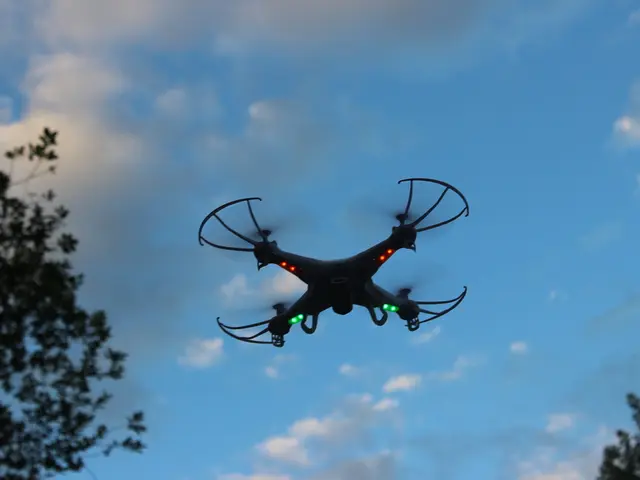Tesla confronts setbacks as Musk places bets on autonomous taxis, with Trump conflict intensifying
In the world of electric vehicles (EVs) and autonomous driving technology, Tesla continues to hold a dominant position, but recent developments suggest a noticeable softening in its financial performance and heightened market challenges.
The federal tax credit for Tesla EVs is set to end after September, following the passage of the "Big Beautiful Bill." This move could potentially impact Tesla's sales in the United States. Meanwhile, Tesla's Q2 2025 financial performance shows signs of pressure compared to previous years. Earnings dropped 23% year-over-year, and operating income declined by 42%, now under $1 billion. These declines are partly sustained by regulatory credits, which have dropped to about half the contribution compared to before.
Tesla reported revenue of approximately $22.5 billion, slightly exceeding expectations but still representing a 12% drop versus last year. Net income was roughly $1.17 billion, down 16% from Q2 2024. Vehicle deliveries fell nearly 14% year-over-year to 384,122 vehicles, linked to weaker North American demand and fierce price competition in China.
Regarding autonomous driving technology, Tesla continues to invest heavily in research and development, presumed to include Full Self-Driving (FSD) development. The company is also preparing to launch a U.S. robotaxi service, indicating ongoing advancement and commercialization efforts in autonomous driving. However, Tesla's autonomous push is currently behind that of Waymo, with technology still in early-stage testing.
Tesla faces several challenges in the crowded EV and autonomous technology landscape. Revenue pressure due to reduced regulatory credit margins and political uncertainties, such as U.S. climate policy impacts, pose a threat. The company also faces increased competition, which puts strain on delivery volumes and pricing power. To maintain its leadership, Tesla needs to accelerate innovation and adapt swiftly.
Despite these challenges, Elon Musk remains optimistic, warning of more "rough quarters" ahead but insisting that Tesla is on track to become the world's most valuable company if it can scale autonomy next year. Tesla has taken steps towards this goal, offering robotaxi rides in Austin last month and introducing a driverless Model Y, which completed a 20-kilometre test run.
The company's stock slipped another 5% in after-hours trading following the earnings report. Despite the revenue drop and net income decline, Tesla posted a 17% profit increase in its services and other revenue segment. The Supercharger network expanded 18% year over year, and Tesla opened its first showroom in India last quarter.
However, Tesla's brand image is potentially being tarnished by politics. Musk's open support of Trump and far-right parties in Europe has led to a rise in negative public sentiment, which could impact the company's sales and reputation. Furthermore, tariffs have added $300 million to Tesla's costs last quarter, potentially straining its financial position.
In summary, Tesla remains a dominant player in the EV and autonomous driving technology market, but it is experiencing a noticeable softening in financial performance and heightened market challenges. The company must navigate these challenges to sustain its market position and continue its pursuit of becoming the world's most valuable company.
The upcoming end of the federal tax credit for Tesla EVs could potentially impact Tesla's sales in the United States, as highlighted in the "Big Beautiful Bill." In terms of politics, Tesla's brand image is under threat due to Elon Musk's open support of certain political figures, which could negatively affect the company's sales and reputation.




